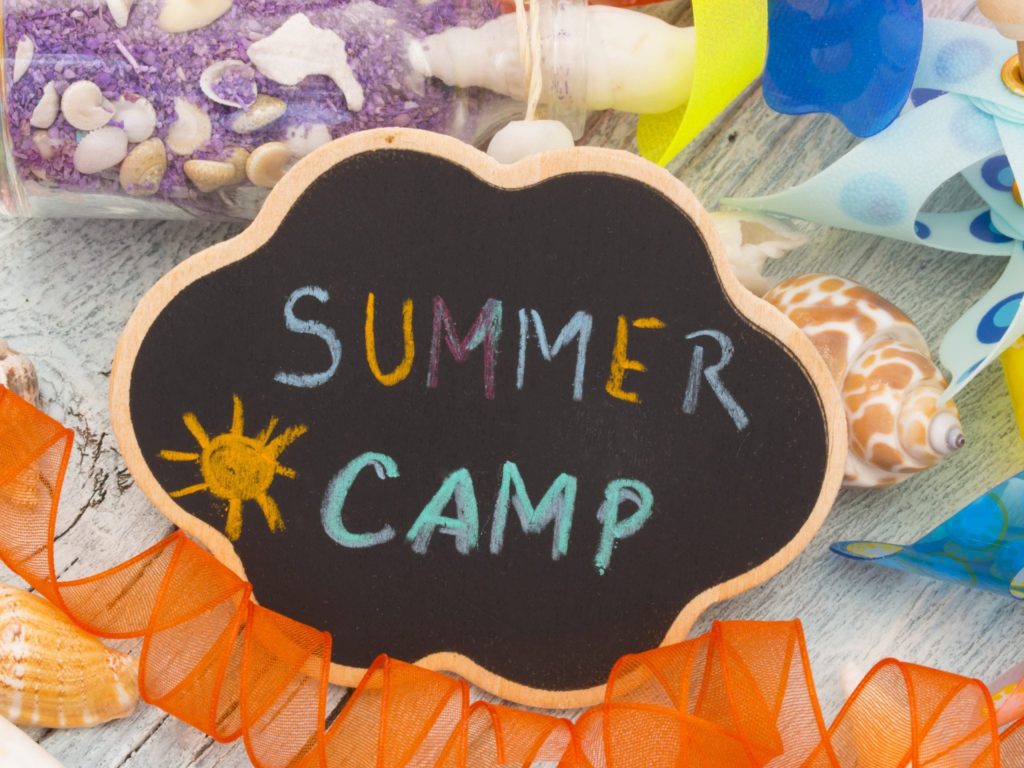CHOOSING THE BEST SUMMER CAMP

In recent years, summer camps have grown way passed the old days of kayaking and spooky stories by the campfire. Nowadays, kids can spend the summer creating sophisticated computer programs, working with endangered animals and even get S.C.U.B.A. certified. With the number of day camps having increased in the U.S. by 90%1 since 1993 it’s no wonder they have so many opportunities.
Choosing the right camp can seem like a daunting task, especially when parents could be shelling out more than $300 per week in some case. But how can parents find the right camp for each child and make sure they’re spending the summer learning and making great memories?
Set Goals for the Summer
Set aside some time this month to talk with your kids about activities they’d like to try and learn about over the summer break. Encourage them to be as specific as possible (i.e. take dance, work with animals, learn karate). If your child can’t decide on one or two things to focus on, that’s ok too. That child will probably do better in a camp that offers different daily programs to choose from.
It’s important that each of your kids, no matter what their interests, sets obtainable goals, like firing a rocket and creating an iPhone app, that summer camp can help them achieve. Not only will this get them excited about summer but give them something to focus on throughout the entire break. And no, playing more video games is not an acceptable goal.
Research
Once you and the kids have set goals and interests to explore between June and August, you’ll start the process of researching camps that will help them achieve these and more. You can find a full list of bay area camps on TBParenting.com/SummerCamps.
After compiling a list you’ll want to confirm that any camps you’re considering have staff and counselors that are well-trained, First Aid and CPR certified and are not overwhelmed by the number of campers. You’ll also want to check to see if the camp is accredited by organizations like the American Camps Association or National Camp Accreditation Program. Although not required, accreditations means that a camp has taken extra steps to prove their staff, facilities and programs are safe and up-to-date. Lastly, don’t be afraid to ask for referrals from previous campers’ parents or ask for a tour or meeting with a Camp Director.
Be Flexible
Finding the perfect summer camp for your kids is like looking for who fits the glass slipper. Your kids will definitely feel a little nervous on the first day of camp but once they come home, hopefully they’ll be hooked and eager to return the next day. If after the first week, your child seems disconnected or uninterested in a camp they helped select you may want to revisit your original list of camps. The nice thing about summer camp is that you have endless options choose from and unlike school, you can move from one camp to another with relative ease.
Going to summer camp is as much of a pastime as eating apple pie on Fourth of July. And when you and your kids can find the right camp, you’ll see an increase in independence, leadership, friendship skills and social comfort. In a national study conducted by the American Camp Association between 2001 – 2004 it was found that camps are “a unique educational institution and a positive force in youth development.”2 Take advantage of the time you have this summer and find the best camp for your kids. It’ll be well worth the effort.
You can find a full list of bay area camps on TBParenting.com/SummerCamps.